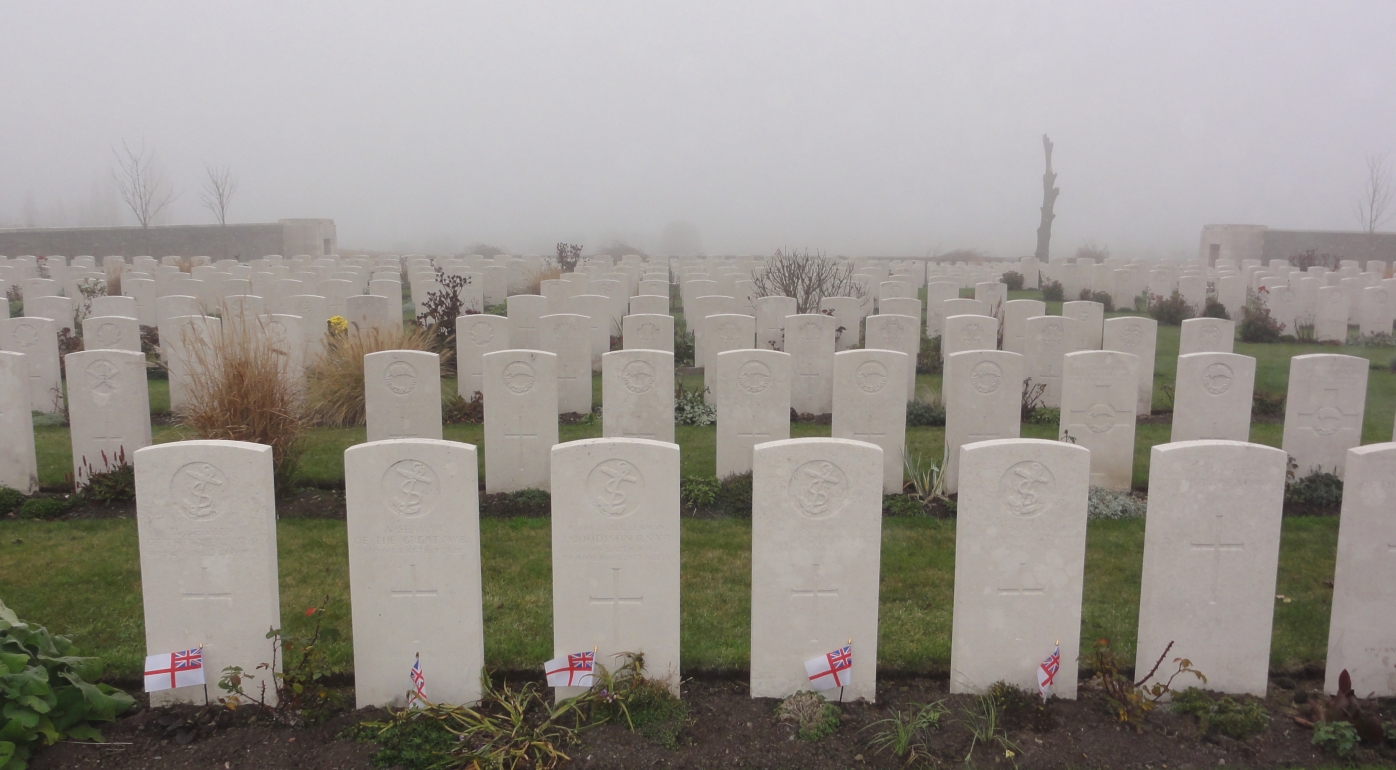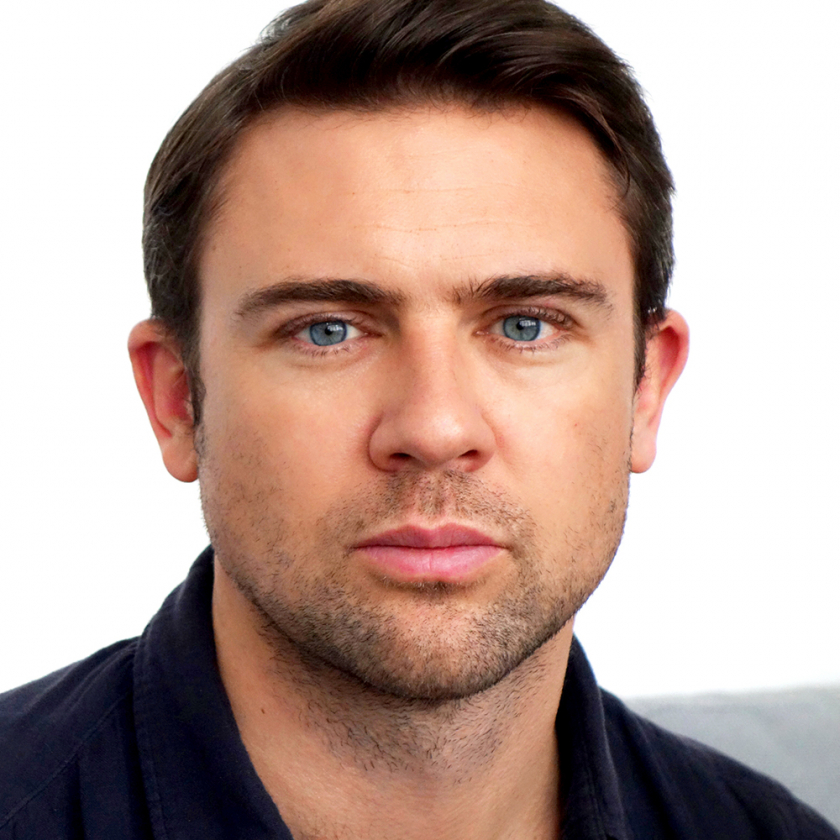‘A voice had become audible, a note had been struck, more true, more thrilling, more able to do justice to the nobility of our youth in arms engaged in this present war’
In his 1952 poem ‘The Shield of Achilles’, Auden describes Achilles’ mother, Thetis, looking over the shoulder of Hephaestus as he forges her son a shield. She does so anticipating scenes of honour, celebration and prestige: ‘vines and olive trees’; ‘ritual pieties’; ‘athletes at their games’. But instead the blacksmith God, informed with all the terrible knowledge of Auden’s twentieth century, is busy embossing the shield with scenes of war and its aftermath. ‘An artificial wilderness/ And a sky like lead’; ‘decent folk’ watching an execution; a voice proving ‘by statistics that some cause was just’; a wandering urchin ‘who’d never heard/ Of any world where promises were kept,/ Or one could weep because another wept.’ Confronted with these unflinching depictions of what war really is and means, Thetis cries out in dismay as Hephaestus, his job done, ‘hobbles away.’
For much of human history war poetry, which from a 21st Century perspective we might expect to have always have been on the side of the truth-telling Hephaestus, has more often than not contributed to a public narrative closer to Thetis’ anticipated scenes of honour and glory. Until recently poets wrote about war not because poetry was particularly well-suited to exposing and giving voice to its realities (although it is – more on that later), but rather because war was well-suited to poetry. Sacrifice, heroism, drama, loss, virtue, amputated love – for centuries wars and the men who fought them have presented poets with a fertile landscape in which to cultivate their craft. In doing so, writing narrative, elegiac or heroic verse at a temporal or physical distance from the battlefield, poets have tended to fuel the climate in which wars are cultivated rather than evoke the truth of conflict or challenge its over-simplified narratives. Dulce et decorum est, wrote Horace, pro patria mori – It is sweet and right to die for one’s country. 2000 years later, in ‘The Charge of the Light Brigade’, Tennyson might have lamented the blunder that sent ‘the noble six hundred’ into the valley of death, but to what extent does the poem actually move on from Horace’s statement? To what extent does it bring to life what it was like to have ridden into that futile carnage of cannonballs and shot? Were all six hundred of the Light Brigade truly noble? The wounds, the stench, the screams. The individual human stories of hope, fear, hate. All of what it was like for those men is smothered by a blanket of retrospective grandeur, Tennyson’s poetry investing the horror with a safely tragic mythic weight rather than any resonant human detail that might have punctured the propaganda of the day with lyrical authenticity.
Even the poetry that provoked the quote to which this essay is a response, the work of Rupert Brooke, failed to get close to sounding a true note of the war in which he died. A voice might have become audible, as Churchill said, but it was an old voice, not a new or a truthful one; a continuation of the centuries-old tradition of poetry being put to the service of war’s bland romantic narratives. Had he survived the infected mosquito bite from which he died and witnessed the bitter, cruel fighting of WWI, I’m sure Brooke would have come to use his poetry to try and sound such a note. As it was, however, he didn’t, so the sounding of that true note was left to others – the WWI poets we now know so well, Wilfred Owen (who famously re-occupied Horace’s statement for the common soldier), Siegfried Sassoon, Robert Graves, David Jones, Issac Rosenberg, Ivor Gurney.
It was in the poems by these men, all of whom fought in the trenches, that British poetry finally took up the role of Auden’s Hephaestus in relation to conflict, deploying its unique literary qualities to speak truth to power and give voice to the full spectrum of the realities of soldiering. In doing so - in writing from war rather than about war – the WWI poets revealed poetry to be a stunningly effective form through which to unflinchingly render the multifaceted experience of conflict. ‘In war,’ Aeschylus wrote, ‘truth is the first casualty.’ The poets of WWI proved poetry could help keep that casualty breathing. Because they did, the nature of the poetry they wrote has since become a benchmark for what we ask from, and consider to be, the best of contemporary war poetry.
So why were these poems so successful? For two reasons, I think. Firstly, because of the qualities of poetry itself, a literary form that deals in the specific, the arresting image, and yet in which the specific is simultaneously made to resonant in the universal. A form in which the moment, in all its intimacy and context, is not just made to live, but to live on. A poem (I’ll assume we’re talking about good poetry here and follow the line of the WWII poet Keith Douglas who said there is no such thing as bad poetry, just poetry and not poetry) is both immediate and enduring, gaining special purchase in the memory through its calling upon every shade of our communicative selves – the intellectual, the emotional, the associative, the visual, the rhythmic and the musical. ‘Poetry’, as John Berger once wrote, ‘draws windows everywhere.’
In contrast, public discourses about war tend to close windows everywhere. Stories become simplified, brushstrokes become broad, alternative perspectives silenced. Amnesia and misplaced patriotism combine in a lethal cocktail to kill hundreds of thousands. Poetry is an antidote to this. A vital and vitalizing remembering through all five of our senses; a counter-tide against the distancing language of government and the military-industrial complex. Where a news report might talk of a ‘surgical strike’, a poem, working at the leading edge of language, can bring us inside the breathing, panicking, loving and hating body of the person trapped in the bombed building’s rubble, and do so with an immediacy and depth impossible to achieve in journalism, film or, I’d argue, a novel. Where the lexicon of war defuses language, poetry charges it.
But poetry has always had these qualities. So why the sudden sea-change with WWI? Because, quite simply, the poets were there and their poems were read. In the trenches the poet became the soldier and the soldier became the poet. They wrote from what they lived and saw, not from an inherited idea of war or from reported experience. And then, having been written, those poems were read. Not always immediately, but still relatively soon, and in time by a large and engaged readership.
In the years since the end of WWI we’ve seen a gradual reduction in such conflict poetry of immediate proximity reaching a wide audience. There were many excellent soldier poets in WWII who continued the tradition, and combatant poets on both sides of the conflict in Vietnam. But as, through the end of the 20th century and into the 21st, global conflicts have increasingly been fought either by professional armies or marginalized, disposed groups, so the sources of poetry written by those who’ve experienced conflict and its aftermath have drastically reduced. Similarly, the vast majority of civilians affected by conflict tend not to have access to the means to either write their experiences as poetry, or to distribute their work if they do. Lastly, we the readers, no longer go in search of these voices.
In response to this situation the last decade has seen a noticeable increase in war poetry written by poets working from primary sources – from interviews with or testimonials by those who have experienced war first hand. Such a poetry of personal testimony, with the poet becoming a conduit for another’s voice over their own, is crucial if we are to ensure that the stories of contemporary conflict are allowed to continue flowing with any vibrancy into the poetic bloodstream. But it is not enough. Poets’ access is often limited to their own cultural sphere, leading to a constriction of voices along national lines that war poetry already has a tendency to encourage. So the question and challenge facing us today is how can we make sure that a poetry of proximity, a poetry of witness that represents all of those involved, is still written from the frontlines of today’s wars? How can we give an effective poetic voice to the experience of the women Kurdish militia fighting against ISIS? The Syrian child refugee? How can we continue to marry the worst of manmade human experience with what I still believe to be the best of manmade human expression? How can we, to put it simply, keep creating poems that tell us what it is really like, while also making us think, feel, and never forget?
I don’t pretend to have the answers, but I do know we must try. Because if we don’t, then the conversation around war and its aftermath will become, by however small a degree, less articulate, less representative, the notes it sounds less true, and a world in which we continue to solve our disputes through violence, more likely.
Owen Sheers, September 2014

